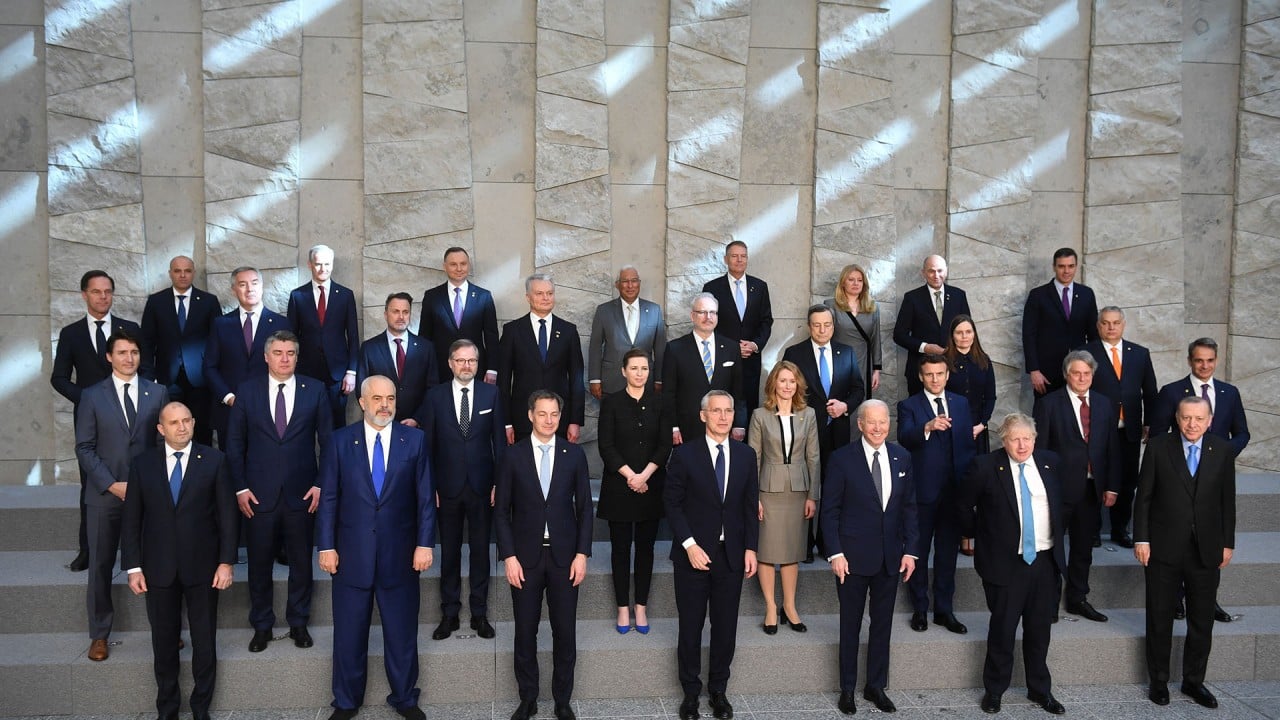
China can help bridge divide with the West by offering to mediate between Russia and Ukraine
- The hostility between China and the West can be seen in terms of Beijing being cast as a member of an outside group
- By mediating in the conflict, China would show it is truly on the same page as the West in wanting peace
Increasingly, the West and China regard each other as the “hostile party” based on opposing identities. China must understand how this identity dynamic works and craft its policies accordingly if this gulf is to narrow.
Social identities are how people define themselves based on their group membership(s). Individuals distinguish between their own group(s) (the in-group) against an outside group (the out-group), highlighting negative aspects of outside groups to enhance the self-image of their own group.
An in-group differentiates itself from an outside group by its attributes, including norms – the rules and expectations about how members behave in a given context.
In the case of China and the EU, while “Western” countries are politically diverse with frequently conflicting goals, most share basic norms as liberal democracies, including holding elections and the protection of fundamental rights.
Though these norms are implemented imperfectly at best, the West is nevertheless increasingly highlighting them as part of their in-group shared identity while emphasising the opposing norms of China, framing it as a hostile out-group.
Did the West always see China as a hostile outside group? In fact, China occupied an ambiguous position in the international community. Its authoritarian political system meant it wasn’t considered part of the “West”. However, the mere existence of political differences didn’t create the present enmity.
Beijing identified itself and its AIIB initiative as a complement to the established development banks, filling a niche and redressing inadequate infrastructure spending in Asia. The AIIB fits within the existing international liberal order.

Even if China is providing only rhetorical support to Russia, the West sees Beijing identifying with a direct challenger to the liberal order. Because Moscow’s territorial aggrandisement by force is an existential threat to the rest of Europe, China’s attempts to qualify its agreement with Russia have fallen on deaf ears. The most important conclusion the West has drawn is that Beijing is supporting a military aggressor.
Why China is refusing to choose between Russia and Ukraine
Is in-group versus out-group hostility never-ending? Not necessarily. Perception of a threat to one’s own group can be alleviated. One way is to adopt a common overarching goal for both China and the West.
China’s claim would be more persuasive if it offered to mediate peace talks between Russia and Ukraine. Questions about Beijing’s credibility as a mediator can be mitigated by China highlighting its strategic partnership with Ukraine and giving Kyiv a sincere hearing.
Having a common goal can be the first step for the West and China to recategorise themselves as fellow members of a larger in-group. To achieve that, new norms which are acceptable to both sides have to be identified.
The Ukraine conflict has drastically shaken the post-Cold-War order, but it may also be an opportunity for China. Beijing can request that all the great powers, including the West, its allies and Russia, come to the table and reveal what each side is prepared to accept to end the conflict.
This may only have a slim chance of actually ending the conflict, but it would be worthwhile for Beijing to play a positive role in trying to ascertain the norms necessary for peace. China can put the West on the defensive by challenging Western countries to offer norms that could end the war.
Surely this would be better than Beijing’s present defensive posture in the face of calls from the West for it to play a more helpful role on Ukraine.
Dr Winston Fung is a research fellow in international development and Hong Kong affairs at the Hong Kong Policy Research Institute



